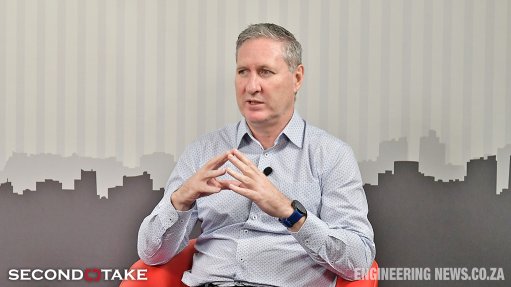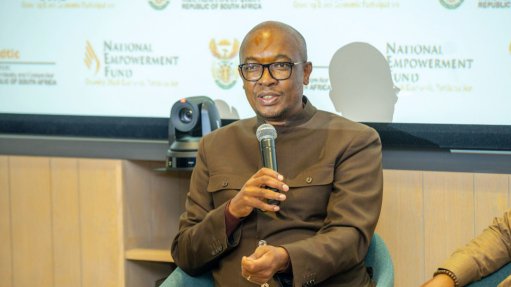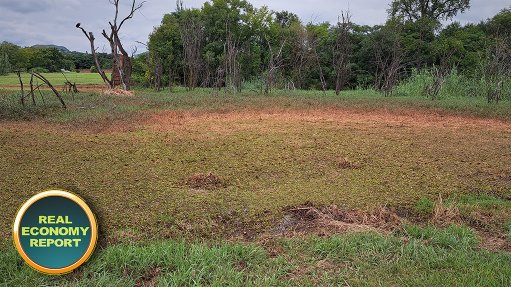The South African (SA) real estate sector defies trends to reflect greeenshoots
This article has been supplied and will be available for a limited time only on this website.
By: Simon Fiford - Senior Vice President, Real Estate Coverage at Standard Bank
2025 has gotten off to a volatile start. We've witnessed significant movements across global markets, shifting geopolitical dynamics, and ongoing volatility driven by persistent macroeconomic headwinds. It's hard to believe the first quarter has already passed.
The South African real estate sector has not been insulated from these broader dynamics. Often misunderstood and seen as a monolith, the sector comprises multiple, highly differentiated asset classes: office, retail, residential, industrial and alternative real estate assets-including data centres, cold storage facilities, and student accommodation, among others.
Across these categories, performance has varied. As the largest African bank by assets (R3.3 trillion as of FY 2024), with a footprint in 20 African markets, Standard Bank actively monitors and analyses real estate trends. Despite macroeconomic challenges, the sector has shown notable resilience.
Beyond global pressures, the real estate market contends with persistently high interest rates, the lingering effects of the post COVID-19 recovery, and muted domestic growth in South Africa. These factors have impacted each asset class differently.
Office trends
Office rentals have shown surprising resilience. The national weighted decentralised vacancy rates for grades A+, A and B office space decreased to 12.6% in Q4 2024, down from 14.4% in Q4 2023. The shift back to physical workplaces has gathered momentum, as hybrid fatigue sets in, and companies prioritise in-person collaboration. Globally, firms such as Amazon, IBM, JP Morgan Chase, Tesla, Zoom, and Google have implemented return-to-office mandates. Locally, we've observed a similar trend: more businesses are encouraging employees to return to office environments, driven by benefits like faster onboarding of new hires, enhanced collaboration, more effective strategic planning and execution.
Retail trends
The retail sector has experienced a remarkable recovery. Footfall and occupancy rates have now surpassed pre-pandemic levels in several key African markets. The asset class is also seeing low vacancy rates (5.5% FY 2024), as well as increased adoption of solar PV initiatives which are being used to manage operational costs. Noting these trends, Standard Bank recently issued a renewable bond with the aim of providing access to affordable sustainable funding for such projects, which ultimately relieve pressure on electricity grids. Furthermore, we have witnessed the rise of urban consolidation which has led to innovative precinct developments, which blend residential, retail, and cultural spaces in one environment.
Residential trends
The structural undersupply of affordable housing in the country remains a challenge. According to the Centre for Affordable Housing Finance in Africa, the total value of South Africa's residential property market reached R6.9 trillion in 2024, encompassing 6.91 million properties. Residential assets represent 89.3% of total property volume, underscoring their centrality to household wealth. Importantly, government-subsidised housing (GSH) makes up 32% of total residential units, or about 2.18 million homes. This indicates massive potential for scalable investment and impact. Standard Bank continues to support clients like Calgro M3 with sustainable finance solutions to support developments such as the Bankenveld District project in Sandton.
Encouragingly, the residential market is showing lower vacancy rates, increased investment in build-to-rent and build-to-sell developments, and a steady rise in rental yields.
Industrial trends
The standout performer across the board continues to be the industrial sector. This asset class benefits from booming e-commerce, the reshoring of supply chains, and demand for warehousing solutions. Vacancy rates have dropped by 2.1%, while rental growth has exceeded 5% year-on-year. We are also seeing a surge in tenant-driven developments and sale-and-leaseback structures, enabling manufacturers to remain focused and unlock capital to invest in core operations.
Alternative Assets
Data centres, cold storage, and student accommodation continue to emerge as strategic sub-sectors. Their rise speaks to shifts in technology, food logistics, and urbanisation, pointing to new investment opportunities.
Relevance of Physical Real Estate
According to Standard Bank's internal estimates, the South African commercial real estate sector is currently valued at approximately R1.9 trillion. This represents a significant increase from the R1.3 trillion recorded in 2015, highlighting the sectors growth over the past decade. If we add to this the estimated value of the residential property market (R6.9 trillion) the market size exceeds R8.8 trillion (as of end of 2024).
It is important to note that these valuations may not fully capture the entire market, as certain segments like government-owned properties, hospitals, hotels, and multi-dwelling residential units might be underrepresented in municipal data.
This significant figure affirms the enduring relevance of physical real estate assets, even as digital and virtual platforms proliferate.
The future of Real Estate in Africa
While we note the trends across physical real estate, we do not discount the advantages of digitisation. It has proven to be a key element in the mix desired to meet client needs.
But for many across the continent, physical infrastructure remains essential. Whether it is visiting a favourite retail store, collaborating in an office, or living in secure housing, real estate continues to shape our daily lives.
Balancing innovation with tradition will be non-negotiable in the near future. At Standard Bank, we are committed to supporting our clients through the cycle with clarity, precision, and long-term vision. We believe that real estate has a vital role to play in advancing Africa's economic future.
The ancient Greeks defined excellence as "a state of being at the highest possible level, encompassing both physical and moral qualities”.
In that spirit, we continue to partner with likeminded clients who see Africa’s success as integral to global prosperity. Notably, our Group purpose lives through our everyday business, “Africa is our home and we drive her growth”.
Comments
Press Office
Announcements
What's On
Subscribe to improve your user experience...
Option 1 (equivalent of R125 a month):
Receive a weekly copy of Creamer Media's Engineering News & Mining Weekly magazine
(print copy for those in South Africa and e-magazine for those outside of South Africa)
Receive daily email newsletters
Access to full search results
Access archive of magazine back copies
Access to Projects in Progress
Access to ONE Research Report of your choice in PDF format
Option 2 (equivalent of R375 a month):
All benefits from Option 1
PLUS
Access to Creamer Media's Research Channel Africa for ALL Research Reports, in PDF format, on various industrial and mining sectors
including Electricity; Water; Energy Transition; Hydrogen; Roads, Rail and Ports; Coal; Gold; Platinum; Battery Metals; etc.
Already a subscriber?
Forgotten your password?
Receive weekly copy of Creamer Media's Engineering News & Mining Weekly magazine (print copy for those in South Africa and e-magazine for those outside of South Africa)
➕
Recieve daily email newsletters
➕
Access to full search results
➕
Access archive of magazine back copies
➕
Access to Projects in Progress
➕
Access to ONE Research Report of your choice in PDF format
RESEARCH CHANNEL AFRICA
R4500 (equivalent of R375 a month)
SUBSCRIBEAll benefits from Option 1
➕
Access to Creamer Media's Research Channel Africa for ALL Research Reports on various industrial and mining sectors, in PDF format, including on:
Electricity
➕
Water
➕
Energy Transition
➕
Hydrogen
➕
Roads, Rail and Ports
➕
Coal
➕
Gold
➕
Platinum
➕
Battery Metals
➕
etc.
Receive all benefits from Option 1 or Option 2 delivered to numerous people at your company
➕
Multiple User names and Passwords for simultaneous log-ins
➕
Intranet integration access to all in your organisation




















